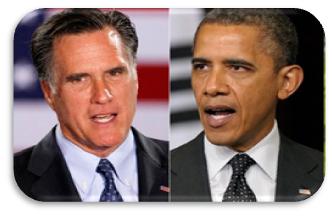 Back in September, we wrote a post about the Obama campaign’s use of radio. Now as it turns out, radio may end up being the key game-changer in this seemingly endless election campaign.
Back in September, we wrote a post about the Obama campaign’s use of radio. Now as it turns out, radio may end up being the key game-changer in this seemingly endless election campaign.
If you read Politico, you’re obviously a political geek who checks updated polls every day, follows every press conference, and knows precisely where Romney and Obama have been campaigning on a daily basis.
Last week, Politico’s Josh Gerstein wrote a great piece about how radio has become the stealth weapon in this presidential campaign. Both the Obama and Romney teams have increasingly turned to radio in the late innings for a variety of strategic and tactical reasons as each side anticipates a big win tomorrow.
Gerstein’s article is a sales piece for every radio station in America, especially during the next campaign cycle where radio will hopefully be even more proactive in securing advertising dollars nationally, statewide, and in local markets.
Here are some of the highlights:
- Radio’s targeting ability – Gerstein talks about how radio is the perfect medium to focus messaging for different constituencies, and for spots ranging anywhere from gay marriage to defense cuts. And as he writes, radio “lets them roll out edgier ads at a relatively low cost…”
- Radio has a better advertising environment – Your read that right. Evan Tracey, whose company tracks political ad spending, notes that “there’s less clutter on radio than on TV. It’s a crowded room problem…In Las Vegas, there have been something like 73,000 political TV ads. That’s a very crowded room.”
- Radio is social – Tracey also points out that radio is “kind of the original microtargeting and social media.”
- Radio is effective – Tracey again: “The reason people are still buying radio is because it works.” That sounds like a great political slogan.
- Radio is below the radar – Because it is less visible than TV and less likely to be covered by the media, Darrell West of The Brookings Institution notes that “candidates can often stretch the truth or use more outrageous claims on radio than they do in television.”
- Radio finishes strong – As Pat McGee, VP of political sales and strategy for the Katz Media Group, avers, “Radio tends to be the cavalry at the end.”
- Radio reaches everyone – An Obama campaign aide explains that radio “gets you a chance to reach voters that aren’t overtly political…voters who aren’t reading Politico every day or checking BuzzFeed every five minutes.”
- Radio is big with women – Gerstein notes that family-oriented women are especially likely to listen to radio because they are too time-pressured to watch a lot of TV – but they are in their cars.
- Radio is personal – This last point is a big deal. Elections and who one ultimately decides to vote for can be an intensely personal decision. Consumers are often alone when they’re in their cars, and radio creates an intimate connection that you just don’t get when you watch TV. We’ve pointed out this key “emotional trigger” from Techsurvey8, and this article underscores the value of a personal, direct message delivered via radio.
Radio and politics make excellent bedfellows.
Thanks to Entercom’s David Field for bringing this article to my attention via Twitter.
- Media And Technology In 2025: Believe It Or Not! - April 18, 2025
- In Radio, You Just Never Know - April 17, 2025
- The Secret To Making A Great Podcast (And Great Radio) - April 16, 2025




Leave a Reply